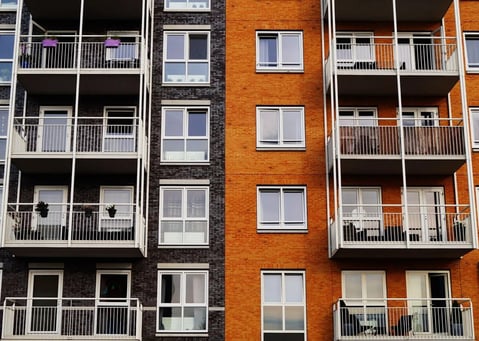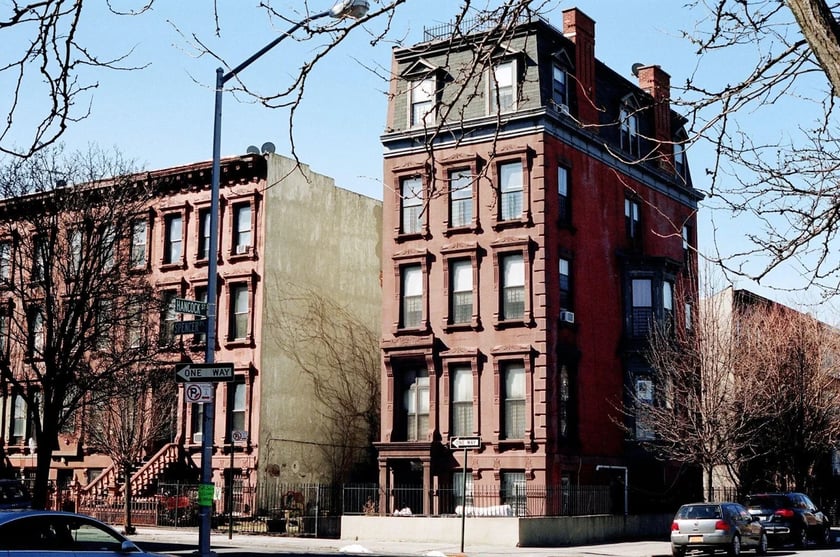
Buying an apartment complex can be a lucrative investment opportunity, providing a reliable source of monthly income and potential profits. However, it's important to note that purchasing an apartment building is best suited for experienced investors due to the significant time, effort, and financial commitment involved. In this article, we will guide you through the process of buying your first apartment complex, covering key considerations and steps to help you make an informed decision.
Related Link: Using Rental Property ROI Calculator to Maximize Your Profits
Decide if Buying an Apartment Complex Is Right for You
Before delving into the process of buying an apartment complex, it's crucial to determine if this type of investment aligns with your real estate goals and financial situation. Consider the following factors:
- Understanding the Differences: It's essential to recognize the distinctions between buying an apartment complex and other types of properties, such as single-family homes or smaller multi-family units. Buying an apartment building requires more extensive research, time, and capital, as well as higher costs and maintenance requirements.
- Pros and Cons: Evaluate the advantages and disadvantages of purchasing an apartment complex. Some benefits include recurring income, diversification of income sources, lower per-unit maintenance costs, opportunities for additional income streams, and financing based on the building's financial performance. However, challenges include increased management requirements, high tenant turnover, less tenant care, higher maintenance costs, and potential challenges with the exit strategy.
Start maximizing your rental property's profitability today with our water conservation tools, and experience significant savings on water bills while reducing your environmental footprint. Visit The Water Scrooge to learn more
Learn About the Types and Classes of Apartments

To make an informed decision, familiarize yourself with the various types and classes of apartments. Apartments come in different forms, such as converted houses, garden apartments, properties with multiple units in a single building, and multi-story, mid-rise, and high-rise apartments. In the United States, apartments are classified into four categories: Class A, Class B, Class C, and Class D. Each class represents different features, conditions, and risks. Typically, first-time apartment complex investors opt for Class B or Class C properties due to their lower costs and management requirements.
Examine Your Personal and Financial Criteria
Evaluate your personal and financial goals and abilities before selecting a particular type of apartment complex. Consider factors such as the number of units, your level of ambition, risk tolerance, and expected return on investment (ROI). The number of units affects the time, energy, and financial commitment required. Assess your ambition level and determine how much effort and time you are willing to invest in the property. Additionally, establish your risk threshold and calculate the ROI to make an informed decision.
Locate an Apartment Complex to Buy
Once you have a clear understanding of your investment criteria, it's time to find a suitable apartment complex to purchase. Explore multiple strategies, including online searches, working with real estate agents, targeting for-sale-by-owner properties (FSBOs), joining associations, or partnering with investment companies.
Evaluate the Apartment Complex Framework

When you identify potential properties, conduct a comprehensive evaluation of each one. Focus on crucial aspects such as location or neighborhood, number, and size of units, complex amenities, and construction details.
- Location or Neighborhood: Ensure the property is situated in a desirable location with access to amenities, transportation, quality school districts, and thriving businesses. A well-located property attracts better tenants, higher rents, and potential appreciation.
- Number and Size of Units: Consider the number of units you can manage effectively within your goals and resources. Different unit sizes have varying rental demands, with two-bedroom units generally being more sought after than studios or one-bedroom units.
- Complex Amenities: Assess the existing amenities and their impact on tenant interest and monthly expenses. More amenities can make the property more appealing to tenants, allowing you to charge higher rents. However, additional amenities also incur higher costs, so research the expenses and financial returns associated with each amenity.
- Construction Details: Pay attention to the construction details of the apartment complex, as they can indicate potential problems. Features such as wood frames, flat roofs, plumbing systems, shared utilities and the presence of asbestos or lead paint can have long-term implications on maintenance and repair costs.
Understand the Full Financial Picture and Profit Potential
To accurately assess the investment potential of a property, analyze detailed financial information. Look at rent rolls, occupancy rates, and cost per unit, and perform basic financial calculations to get a preliminary understanding of the property's profitability. However, to gain a comprehensive view, calculate more advanced financials such as gross operating income, expenses, and capitalization rate.
- Rent Roll: Determine the current rent collected for each unit and multiply the total by 12 to calculate the gross annual rent.
- Occupancy and Vacancy Rates: Assess the occupancy rate (number of occupied units) and vacancy rate (number of vacant units) to compare them with the local average.
- Cost per Unit: Divide the purchase price by the total number of units to calculate the cost per unit, which helps evaluate the property's value in comparison to others in the area.
- Performing due diligence: Investigate factors like the seller's motivations for selling, review existing leases, analyze tax returns and property accounting records, and conduct thorough property inspections.
Perform Due Diligence
Before finalizing the purchase, conduct due diligence to ensure you have a comprehensive understanding of the property. Review leases, profit and loss statements, and property inspections. Understanding the seller's motivations and thoroughly evaluating the property will help you make an informed decision.
Related Link: What to Know About Buying Rental Property as an Investor
Obtain Financing
Financing an apartment complex differs from residential purchases, as you will likely require commercial lending. Explore options such as government-backed apartment loans, bank balance sheet apartment loans, and short-term apartment loans. Consider factors like lender-required reserves, the property's potential, and the type of loan (recourse vs. non-recourse) when obtaining financing.
Make an Offer on the Apartment Complex
Once you have thoroughly evaluated the property, determined its market value, and obtained financing, it's time to make an offer. Submit your offer to the seller or their agent and negotiate any terms. Consider conducting a rental market analysis and getting an appraisal to strengthen your offer.
Close on the Purchase of the Apartment Complex
Closing on an apartment complex involves more requirements and complexities than a residential purchase. Choose an experienced escrow agent or title company, strategically schedule the closing date, and ensure a smooth transfer of security deposits. Collaborating with professionals and adhering to the necessary procedures will facilitate a successful closing.
Are you a landlord looking for shower regulators or water conservation kits? Checkout our site and start saving money today.
Buying Your First Apartment Complex
Buying your first apartment complex requires careful consideration, research, and due diligence. By understanding the differences between property types, evaluating personal and financial criteria, and thoroughly analyzing potential properties, you can make an informed investment decision. With proper planning, financing, and attention to detail, you can embark on a rewarding journey as the owner of an apartment complex.
Discover the ultimate solution for landlords and multifamily investors to cut water expenses effortlessly. Visit Water Scrooge now and revolutionize your rental property's efficiency!
Related Link: Everything You Need to Know About Multifamily Investment Strategies

